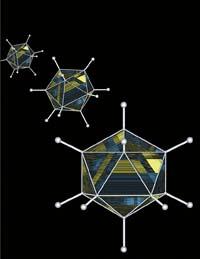Reprogram cells without integrating them into the genome

Researchers at Harvard University have improved a technique of creating stem cells. Adult cells in the tail and liver of mice have been reprogrammed and obtained stem cells similar to embryonic cells, using a virus that does not affect the cell genome.
These cells obtained by reprogramming adult cells are known as induced pluripotent stem cells. They are very encouraging for researchers, especially because they could avoid the controversies and difficulties in obtaining eggs that cause embryo cells. So far retrovirus was used to reprogram adult cells, but retrovirus is integrated into the cell genome, which significantly increases the risk of developing tumors.
For its part, the Harvard team has used an adenovirus to reprogram the cells of mice, a virus that is not integrated into the cell genome. Furthermore, in their experiments, mice treated with these cells have not developed tumors. However, the technique has not improved in all senses, since with adenobirus efficiency decreases considerably: reprogramming takes more than a month (with retrovirus 10-15 days) and induced cells are achieved much less.
Buletina
Bidali zure helbide elektronikoa eta jaso asteroko buletina zure sarrera-ontzian











